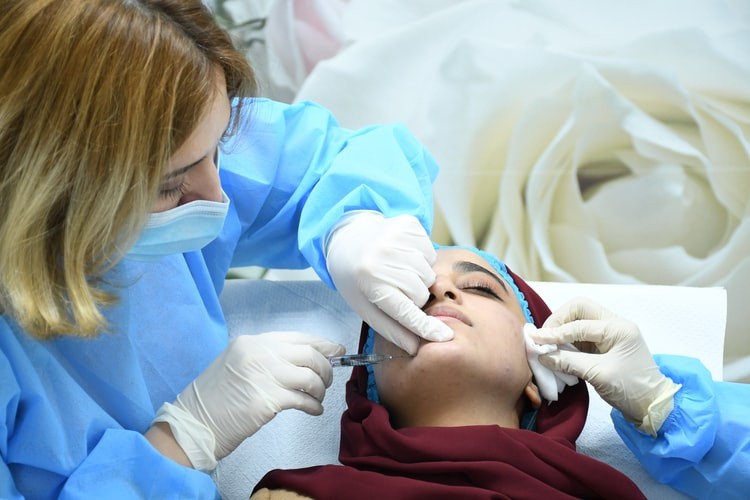Botox or botulinum toxin is designed to stop wrinkles as people age. But now, French scientists are claiming that the wrinkle-fighting toxin can also protect people from getting infected with COVID-19.
With millions of people getting Botox injections every year, could this imply a new approach of protection against the virus? Some experts say that the study is "extremely poor" and has not proven whether Botox could indeed fight against COVID-19.

What are Botox Injections For?
According to Mayo Clinic, Botox injections are used to reduce facial wrinkles and treat other conditions. They use a toxin called onobotulinumtoxinA, which is produced by a microbe that causes botulism.
Botox is the first drug to use botulinum toxin, which is relatively safe when performed by an experienced doctor. More so, Botox blocks certain neuroreceptors that are responsible for muscle contractions. Botox is used to relax facial muscles that cause wrinkles in the forehead and around the eyes.
But other uses of Botox could also include conditions that affect bodily functions, such as cervical dystonia, lazy eye, muscle contractures in some neurological conditions, hyperhidrosis or excessive sweating, chronic migraine, urinary bladder dysfunction, and eye twitching.
Botox injections are strictly not recommended on pregnant or breastfeeding women, as well as people who are allergic to the protein found in cow's milk.
ALSO READ : What Are Booster Shots? US FDA Set to Discuss Pfizer's Application for a COVID-19 Vaccine Third Dose
How Could Botox Protect People From COVID-19?
In the paper, titled "Could Treatment With Botulinum Toxin Protect Against Subsequent Infection With COVID-19?" published in the Journal of Stomatology, Oral and Maxillofacial Surgery, French researchers report comparative results of the impact of SARS-CoV-2 on patients injected with botulinum toxin compared to the general population.
According to Daily Mail, 193 patients have been involved in the study, and all of them received Botox for medical ailments. Researchers followed the patients for three months after receiving the injection to monitor whether they would catch SARS-CoV-2, the virus that causes COVID-19.
None of the participants tested positive for the deadly infection, while two reported experiencing symptoms. One was a 53-year-old woman who developed symptoms after a trip to Las Vegas, while the other was a 70-year-old woman who fell ill but was never tested.
The team highlights the case of a 64-year-old woman from southern France who got a Botox injection and claimed that she did not catch the virus despite living in a village where almost everyone got infected. Moreover, they also pointed to a 46-year-old woman who did not get infected even after her daughter tested positive. However, there is no information on whether the mother and daughter were living together.
Researchers wrote in their paper that the Botulinum neurotoxin type A could block acetylcholine (ACh) and other neuromodulations and neuroreceptors. They suggested that the protective abilities of nicotine against COVID-19 by blocking ACh are similar to the blocking properties of Botox injections.
However, experts such as Professor Willem van Schaik from the University of Birmingham's Institute of Microbiology and Infection told Daily Mail that this recent paper presents weak evidence that Botox can protect against COVID-19. He added that the gold standard for treatment is to undergo clinical trials compared to a placebo, which the paper fails to describe.
Moreover, he said that the paper did not give a detailed explanation of the mechanisms of how Botox reacts to the virus and that it is highly speculative. Researchers admitted that further study is needed to find out how Botox could stop the infection.
RELATED ARTICLE : COVID-19 Patients To Receive Nicotine Patches Amid Studies Showing Smokers Are Less Likely to Catch Coronavirus
Check out more news and information on COVID-19 on Science Times.
© 2026 ScienceTimes.com All rights reserved. Do not reproduce without permission. The window to the world of Science Times.











